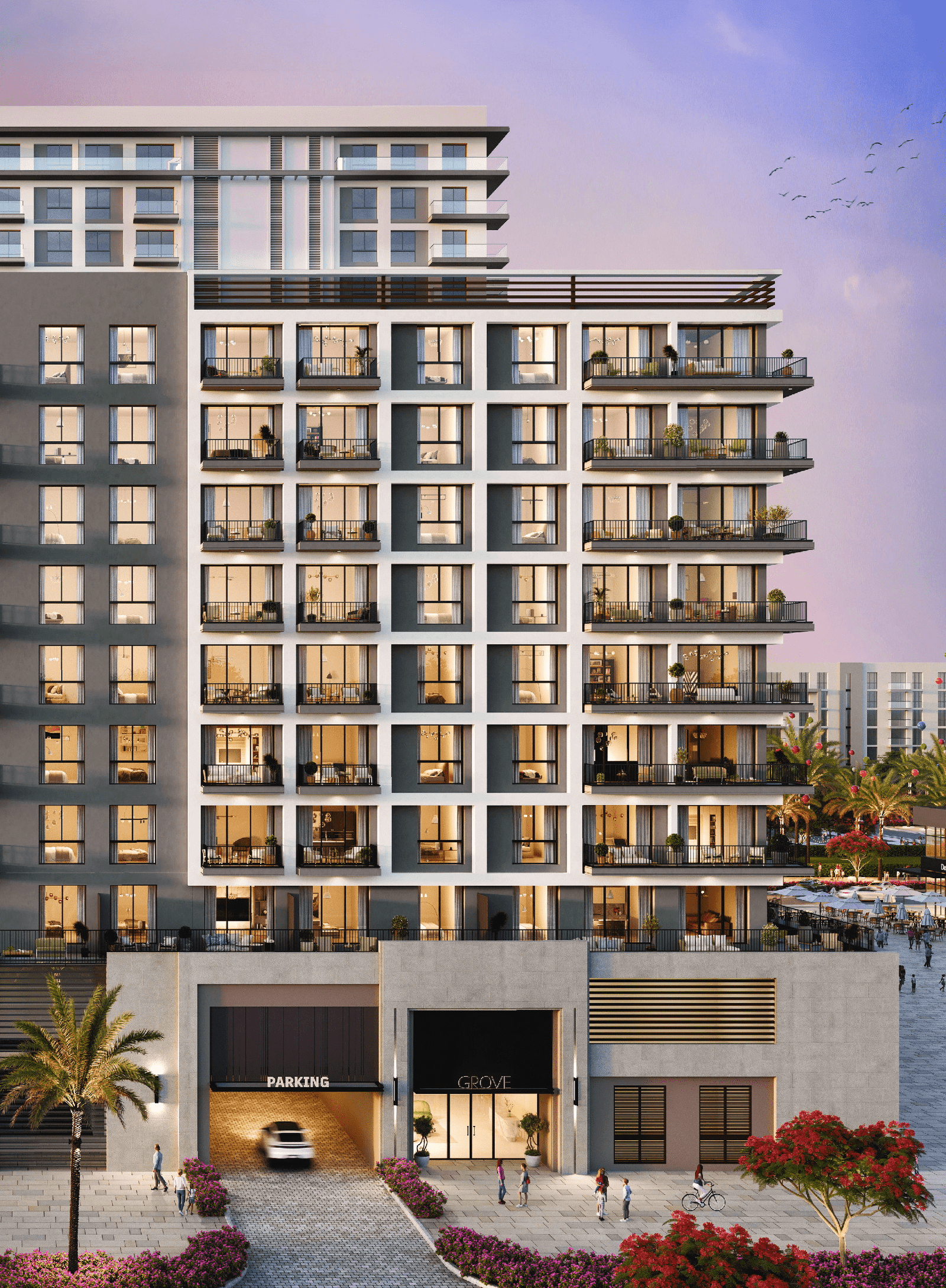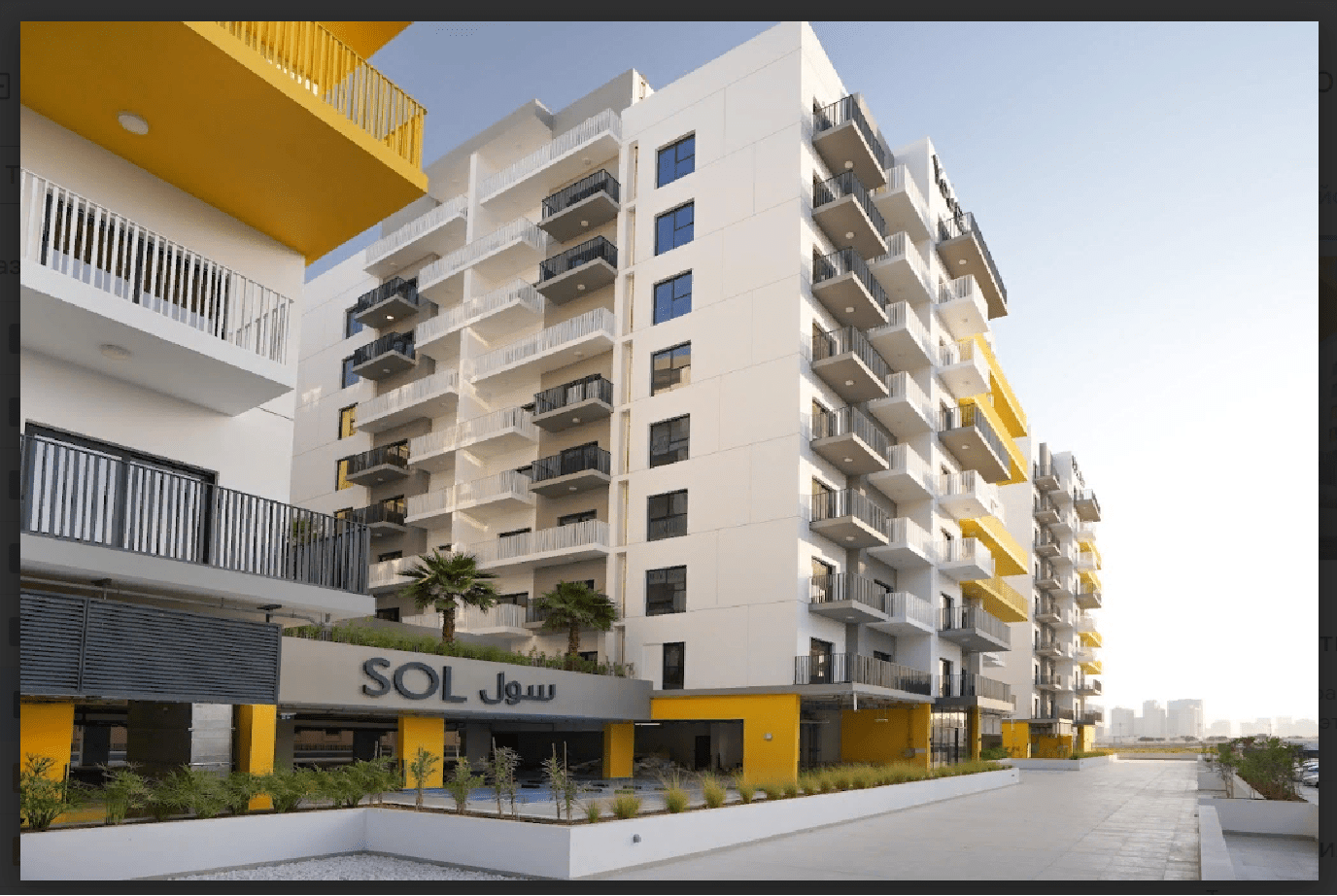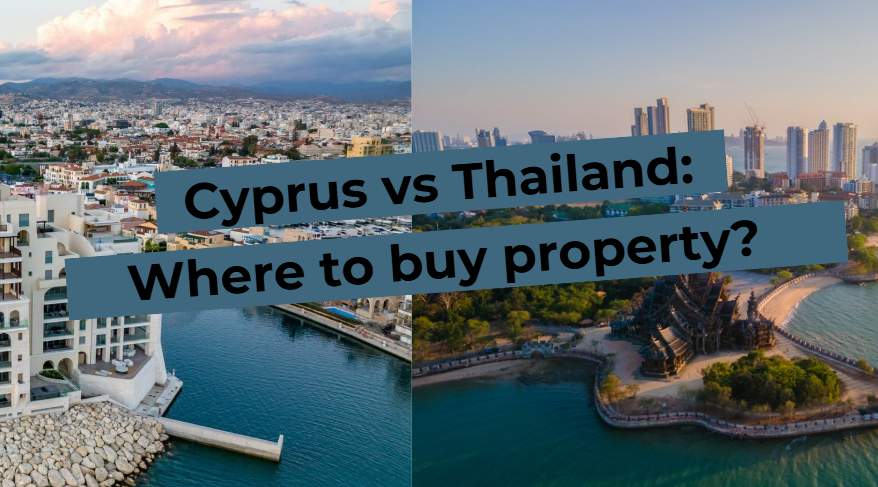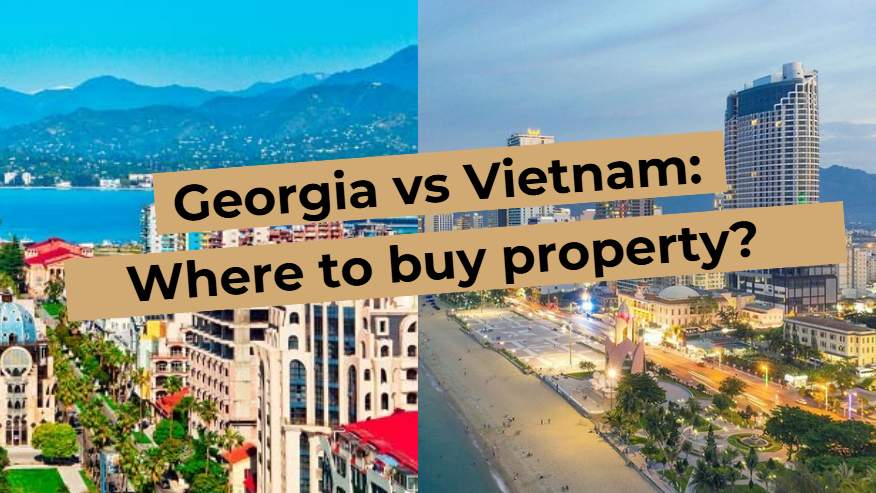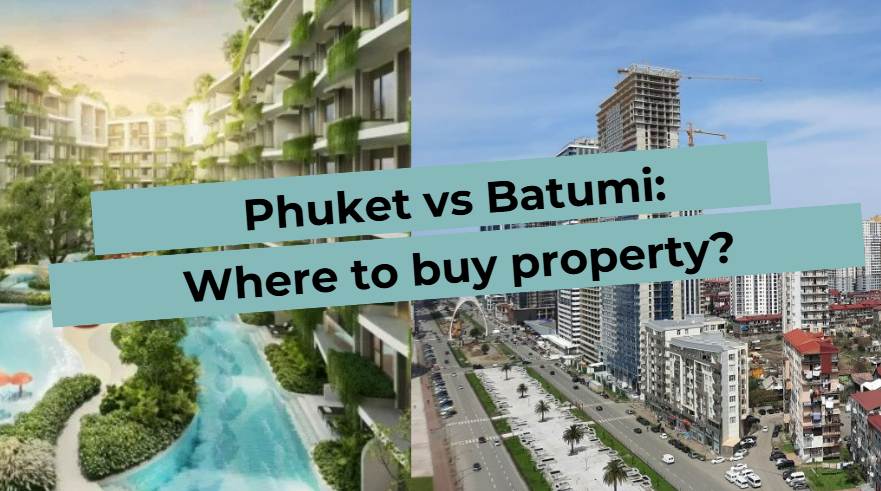
Residence permit in Spain through the purchase of real estate


Obtaining a residence permit in Spain through the purchase of real estate is not just a way to legalize your stay in the country, but also an opportunity to start a new life under the sun, enjoying the Mediterranean climate and culture. Many foreigners, including Russians, choose this path to obtain the so-called "golden visa". In this article, we will look in detail at how exactly you can get a residence permit in Spain, what advantages it brings and what you should pay attention to when buying real estate.
What is Spain's "golden visa"?
So, let's understand what this "golden visa" is and why it has become so popular among foreign investors. In fact, it is a program that allows citizens of countries outside the European Union to obtain a residence permit in Spain, provided that they invest in real estate for an amount of 500,000 euros or more. Sounds tempting, doesn't it?
Advantages of a "golden visa" for travel
This visa opens the door not only to life in Spain, but also to free movement throughout the Schengen area. Imagine: you can easily travel around France, Italy or Greece without worrying about visas and other formalities. This is certainly one of the main pluses that attracts people from all over the world.
Who can apply for a "golden visa"?
So who can apply for a "golden visa"? First of all, investors from non-EU countries and their families. Yes, you heard right - your loved ones can get a residence permit with you too! This means that your wife, children and even parents can enjoy life in Spain, study in local schools and use medical services.

Basic requirements for the applicant
Now let's take a closer look at the basic requirements for the applicant and the property. To apply, you will need to confirm the legality of the source of your funds. This can be, for example, a bank statement or documents confirming business income.
Criteria for the property
In addition, the home itself must meet certain criteria: it must be registered with the Spanish authorities and free of encumbrances.
Procedure for obtaining a residence permit through the purchase of real estate
Now let's look at a step-by-step guide to buying real estate and obtaining a residence permit in Spain. This process may seem complicated, but with the right approach and the support of professionals, you will be able to go through it without much difficulty.
Step 1: Selecting a property
The first step is to choose the right property. Think about what exactly you are looking for: a cozy apartment in the city center, a luxurious villa by the sea or perhaps a commercial property for business? It is advisable to contact an experienced realtor who knows the local market and will be able to offer you the best options. For example, I remember when a friend of mine who dreamed of a house by the sea found the perfect option on the Costa Blanca. She was delighted with the sea view and the proximity to the beach!
Step 2: Checking the legal cleanliness of the object
The next step is to check the legal cleanliness of the object. This is an extremely important step that should not be ignored. You need to make sure that the property has no encumbrances and that the seller is really its owner. At this stage it is advisable to engage a lawyer who will help you understand all the legal nuances. I myself faced a situation when friends bought an apartment, but later found out that it had tax arrears. It was a real nightmare!
Step 3: Residence permit application process
Once you have successfully purchased a property, you can begin the process of applying for a residence permit. You will need the following documents:
- Passport.
- Documents proving ownership of the property (e.g., a notarial deed).
- A certificate of income proving the legality of the source of funds.
- Medical insurance valid in Spain.
- A certificate of no criminal record from your country.
Don't forget that all documents must be translated into Spanish and certified.
Step 4: Waiting for a decision
Once you have submitted your application, all you have to do is wait for a decision. This process usually takes from a few weeks to a few months. It is important to be patient and not to panic. If all the documents are in order, you will get your "golden visa" and you will be able to enjoy life in Spain!
What are the requirements for extending a residence permit and obtaining a permanent residence permit?
When you get your residence permit (Permit to Stay) in Spain, it is important to remember that it will need to be renewed. Here are the main requirements and steps you need to consider to renew your residence permit and obtain a permanent residence permit (PRP).
1. Term of validity of the residence permit
- Issue deadline: A residence permit is usually issued for a period of one to two years.
- Renewal process: A few months before your residence permit expires, you must apply for an extension.
2. Documents for extension of residence permit
To extend your residence permit, you will need to provide the following documents:
- Documents confirming ownership of real estate: This can be a notarial deed or other documents that prove your ownership of the property.
- Evidence of financial solvency: You will need to show that you have enough money to live in Spain. This can be a bank statement or income certificate.
- Health insurance: Proof of health insurance valid in Spain.
- Certificate of no criminal record: In some cases, a criminal record certificate from your country may be required.
3. minimum length of stay
- Staying in Spain: To extend your residence permit, you will need to stay in Spain for at least 183 days per year. This is important to prove your residency status.
4. Obtaining a permanent residence permit (PML)
If you plan to stay in Spain for a long time, you can apply for a Permanent Residence Permit (PRP) five years after you receive your residence permit. Here's what you need to know:
- Requirements for obtaining a residence permit:
- Proof of residence: You will need to prove that you are living in Spain and complying with all the rules. This may include providing documents proving your stay in the country.
- Compliance with tax obligations: You must be aware of your tax obligations and fulfill them in accordance with Spanish law.

5. Obtaining Spanish citizenship
After ten years of residence in Spain, you can apply for Spanish citizenship. To do this you will need to:
- Proof of legal residence: Prove that you have been legally resident in Spain for the last ten years.
- Knowledge of Spanish: You may be required to take a Spanish language and culture test.
- No criminal record: It is necessary to provide a certificate of no criminal record.
6. General recommendations
- Meet the deadlines: Do not forget about the deadlines for applying for residence permit extension and permanent residence permit. It is best to start the process a few months before the deadline.
- Consult with professionals: Contact a lawyer or immigration specialist who can help you prepare all documents correctly and avoid mistakes.
By following these tips, you will be able to successfully extend your residence permit and obtain permanent status in Spain, opening up new opportunities to live and work in this beautiful country.
Financial aspects and real estate taxes
Now let's take a closer look at the financial aspects and taxes associated with buying a property in Spain. When buying a home, it is important to consider several types of taxes and additional costs that can significantly affect your budget.
Property transfer tax (ITP)
The Impuesto de Transmisiones Patrimoniales (ITP) is one of the main taxes you must pay when buying a secondary property. The tax rate varies by region, but is usually between 6% and 10% of the value of the property. For example, if you buy an apartment for 300,000 euros (approximately 320,000 USD), the property transfer tax could be between 18,000 and 30,000 euros (19,000 to 32,000 USD).
VAT (IVA)
If you decide to buy a new property, you will have to pay VAT (Impuesto sobre el Valor Añadido, IVA) instead of ITP. The VAT rate is 10% of the value of the property. For example, if you buy a new apartment for 300,000 euros (approximately 320,000 USD), you will need to pay 30,000 euros (approximately 32,000 USD) as VAT.
Stamp duty
Stamp duty (Actos Jurídicos Documentados, AJD) is a fixed tax that can vary from 0.5% to 1.5% depending on the region. For example, if you buy a property for €300,000, the stamp duty could be between €1,500 and €4,500 (US$1,600 to US$4,800).
Annual property taxes (IBI)
After buying a property, you will also need to take into account the annual property taxes (Impuesto sobre Bienes Inmuebles, IBI). This tax is calculated based on the cadastral value of your property and can range from 0.4% to 1.1% depending on location. For example, if the cadastral value of your property is €200,000 (approximately $213,000), the annual tax could be between €800 and €2,200 ($850 to $2,350).

Utility costs
Don't forget about utility costs, which can also vary depending on the type of property and region. They usually include water, electricity, gas and garbage disposal. On average, these costs can range from €100 to €300 ($106 to $320) per month.
Tax status
It is important to note that if you become a resident of Spain, you will have to pay taxes on your global income. This can include taxes on wages, rental income and other sources of income. However, the tax system may be more favorable for non-residents as they are only taxed on income earned within Spain. Therefore, it is worth consulting a tax advisor to understand which options are best for you and how to optimize your tax liabilities.
Now that we have discussed all the financial aspects and taxes, it is important to remember that proper budget planning and consulting with professionals can help you avoid unexpected expenses and make the process of buying real estate in Spain smoother and more enjoyable.
What rights gives residence permit through the purchase of real estate in Spain?
By obtaining a residence permit in Spain through the purchase of real estate, you open up a whole world of opportunities. Firstly, you get the right to legal residence in the country, which allows you to enjoy all the benefits of living in Spain. This is not only the opportunity to live in a beautiful climate, but also access to quality education and medicine.
Employment rights
One of the issues that many people are concerned about is the possibility of employment. Golden visa holders have the right to work in Spain. This means that you can not only enjoy life on the coast, but also develop your career or open your own business. For example, an acquaintance of mine who moved to Spain quickly found a job in an international company thanks to his skills and language skills. It was a real breakthrough for him!

Access to public health care and education
Equally important is access to the Spanish healthcare system. Spain offers quality medical services, and as a resident, you will be able to use them on an equal footing with locals. This is especially important if you have a family, because health is the most important thing.
In terms of education, your children will be able to attend Spanish schools and universities, giving them the opportunity to learn the language and culture from an early age. I know a family who moved to Spain with their children and they were delighted with how quickly their children adapted and started speaking Spanish.
Restrictions for holders of a residence permit under a "golden visa"
However, it is worth noting that there are some restrictions for holders of the "golden visa". For example, you are not allowed to stay in Spain for more than 183 days a year if you want to retain residency status. This can be important for those who plan to travel frequently or spend time in other countries.
Mistakes and pitfalls in obtaining residence permit through the purchase of real estate
As with any process, obtaining a residence permit through the purchase of real estate in Spain can be fraught with various risks and mistakes. To help you avoid unpleasant situations, we have compiled a table with common mistakes and pitfalls to consider.
| Mistake/Pitfall | Description | Recommendations |
|---|---|---|
| Insufficient site inspection | Many buyers rely only on visual inspection and do not do their due diligence. | Do a due diligence on the property to make sure there are no encumbrances or debts. |
| Not turning to professionals | Ignoring the help of lawyers and realtors can lead to serious problems. | Hire an experienced lawyer and realtor to help you understand local laws and procedures. |
| Improper paperwork | Errors in the documents may lead to refusal to obtain a residence permit. | Ensure that all documents are correctly completed and comply with Spanish law. |
| Failure to recognize tax liabilities | Some buyers don't account for all the taxes associated with buying a property, which can cause financial hardship. | Familiarize yourself with property taxes, including transfer taxes and annual taxes. |
| Lack of health insurance | Without health insurance, you will not be able to get a residence permit. | Be sure to take out medical insurance valid in Spain. |
| Ignoring deadlines for filing an application | A delay in submitting documents may result in the loss of the right to a residence permit. | Keep an eye out for application deadlines and gather all necessary documents in advance. |
| Incorrect assessment of investment risks | Some investors fail to consider market trends and the risks associated with buying real estate. | Conduct market research and consult with professionals to avoid unprofitable investments. |
This table will help you better understand what to pay attention to when obtaining a residence permit through the purchase of real estate in Spain. Remember that careful preparation and consultation with professionals can greatly simplify the process and make it more successful.
Conclusion
Obtaining a residence permit in Spain through the purchase of real estate is a great way to start a new life in the sunny country. It gives you not only the right to reside, but also many opportunities for work, education and travel.
If you would like to learn more about the process or get advice on real estate and immigration, don't hesitate to contact us. We will help you avoid mistakes and make the process as comfortable as possible.
Golden Visa holders can travel freely in Schengen countries, enjoy resident benefits, and invest in a stable real estate market.
Yes, after 10 years of residence in Spain, the Golden Visa holder can apply for citizenship, provided all requirements are met.
Yes, the residence permit is issued for 2 years and then can be renewed every 5 years if all the conditions of the program are met.
Yes, real estate purchased for residence permit can be rented out, which allows you to receive income from the investment.
The process usually takes 2 to 3 months from the time you submit all the required documents.
The buyer must pay property transfer tax (from 6% to 10% depending on the region), notary and registration fees.
No, permanent residency is not required to maintain a Golden Visa. It is sufficient to visit the country at least once a year.
What are the advantages of obtaining a residence permit through the purchase of real estate in Spain?
Golden Visa holders can travel freely in Schengen countries, enjoy resident benefits, and invest in a stable real estate market.
Is it possible to obtain Spanish citizenship through Golden Visa?
Yes, after 10 years of residence in Spain, the Golden Visa holder can apply for citizenship, provided all requirements are met.
Do I need to renew my Golden Visa in Spain?
Yes, the residence permit is issued for 2 years and then can be renewed every 5 years if all the conditions of the program are met.
Can a purchased property be rented out?
Yes, real estate purchased for residence permit can be rented out, which allows you to receive income from the investment.
How long does it take to obtain a residence permit through the purchase of real estate?
The process usually takes 2 to 3 months from the time you submit all the required documents.
What taxes will I have to pay when buying real estate in Spain?
The buyer must pay property transfer tax (from 6% to 10% depending on the region), notary and registration fees.
Do I need to reside in Spain permanently to keep my residence permit?
No, permanent residency is not required to maintain a Golden Visa. It is sufficient to visit the country at least once a year.











